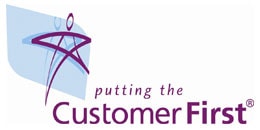
We guarantee quality. All our business services carry the Customer First Standard, a quality mark recognising excellent customer service. And we can also help you source financial support.
Our business service charter sets out our commitment to a professional business service for all our clients.